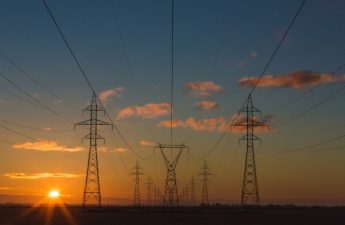Imagine that you wake up under a vibrating bed that lulls sweet songs to ease you swiftly into your day, and you find your robot assistant with a full disc of ready-made croissant and orange juice to fix the detected hypoglycemia in your blood. As you take your breakfast, voice assistance notifies you of the last received emails in order of importance and prepares your day-schedule that is about to unfold. As you are about to reach your electric self-driving supercar you voice a command to your robot assistance to pick up the kids from school as you will be late at the office.
Although we have a long way to go until this scenario really plays out, artificial intelligence is making its way into our lives with fast-moving steps. The progress is mostly invisible with the various advancements taking place in subtle ways, but they accumulate little by little, getting ingrained in our lives as time passes, changing the landscape, and shaping the future of the cities we live on. As machines raise their brain power we find more and more processes to be automated, and it wouldn’t take long for the complete reshaping of society. The impact of AI will be equivalent to the major events of electricity and the industrial revolution, so it’s radical to realize its various ramifications and be able to receive the impact graciously.
What is AI
So how can we define artificial intelligence exactly, and how can we understand its implications in our lives a little bit better? AI includes intelligence, technically employed to objects that used to be dumb. Unresponsive to the world’s provocations, and unable to perceive their surroundings. AI is the human endeavor of employing this responsive quality into things that allow them to receive input from the environment, process it, in ways a human brain would, and make some sort of decision on its workings based on that.
You can imagine toothbrushes that can intelligently detect the particular geometry of your mouth and give feedback on how to clean it better, phones that can recognize your voice and respond to your commands, or mini cleaning robot that knows how to navigate your room and remove all the clutter. All these situations include things that contain the element of improvisation and work under unknown conditions. Elements that would otherwise be soulless, can absorb randomness and proceed with their doings dynamically.
Can Robots Have Feelings
There is a constant dilemma in matters of artificial intelligence and a vigorous dispute among scientists about the extent of their capacities. What are the limits of artificial intelligence really? Can it be considered real intelligence the same way human brains do or is it a matter of pure instructions that these non-living things follow along blindly and have no kind of awareness of their doings? Furthermore, would it be possible for robots to develop other brainy functions that we have the luxury to enjoy like, fantasizing, dreaming, and feeling emotions?
“Fantasy is hardly an escape from reality. It’s a way of understanding it.” ― Lloyd Alexander
So how do feelings work, really? It seems like they are a piece of equipment designed to help us achieve our individual human targets. That includes things like survival and reproduction, progressing in your daily goals that will ensure the future wellbeing of you and your offsprings, eliminating that negative friend that blurs your days and blocks your lungs from breathing deeply. Finding yourself into a path that doesn’t quite hit the point of what matters or that your mammalian brain considers a trap and you are going to feel depressed. Achieve the essential goals and various aspirations and you are going to feel happy.
Emotions ensure that you pay attention to what matters.
So in that view, it’s not really easy to comprehend how robots could ever evolve to have feelings. They can be programmed to receive input, and they can be programmed to react to it in a certain way, and they can be guided to act this or the other way, here or there but it still is more like an imitation rather than actual emotions. Their process will involve nothing of the million years of evolution that shaped the infinite neurons in our brains, to be shaped in such a way that allows them to respond to triggers in particular ways.
The Lack of Consciousness
Here is a challenging question. Try to spot a particular human function that wouldn’t be able to be replicable in computers and you would fail miserably. Fantasy, self-development abilities, and self-inducing knowledge that expands in a self-sufficient manner are all in the main menu of artificial intelligence. There is no particular action that humans do that couldn’t be assimilated in the machines one way or the other. Scientists would always find a way to dig deep into the inner workings of the most complicated functions we have and emulate them through an algorithm. As an example, you can see how neural networks are already the next big thing in technology and how many applications of it and advancements we see almost daily.
The real difference here is the lack of consciousness. This compacted wisdom that has the instinctive grasp of its self-existence and self-purpose. This strange awareness that fathoms the world we live in and feels it in its bone. Algorithms have no need for survival, and they have no concept of the limited amount of energy that needs to be preserved and fused only to things that matter the most. Robots can’t perceive life and death in the way living things can and that is because there is this core ingredient of this deep-rooted awareness that is missing from the equation.
Deep learning
No matter how hard it is to be actually implemented, there are no parts of the human behavior and thinking patterns that couldn’t be emulated by robots. In recent years we have observed the rise of “Deep Learning”, a branch of artificial intelligence that actually emulates the processes of neurons and networks and trains itself to deepen its patterns to such a degree that it can understand the objects in images or even language.
But even in this case that they can efficiently recognize and categorize the various components, they still apply simple algorithmic patterns to pre-established rules as they are defined to them and would never be in a position to apply the “consciousness” part in them. The problem is not that they wouldn’t be able to process any changing scenarios or understand new words in a language, because they could eventually reach the level of sophistication that can adapt to an ever-changing environment. The problem is that in all cases it would be soulless responses to predetermined patterns.
The Future Of AI And The Emerging Economies
So imagine that artificial intelligence advances even further as time passes. Robots make it deep into our lives, helping us in every little aspect of it. We have robot-doctor assistants, and robot cleaners for our houses, and mechanical teachers that can teach our kids the basics of human sciences and lessons.
Besides the everyday conveniences, we also develop enough machine power and infrastructure to automate food production. Huge dedicated buildings, designed to produce and replicate farm animals, can be sustained with a bunch of robots overlooking the processes with the minimum amount of human intervention. Hand labor work has been taken care of in its entirety and we are barely required to do anything physical. The new sophisticated system has advanced so much that there is a standard universal incomefor everyone that is covering for our basic needs. How would our lives be transformed in such a scenario? Would they change for the better helping us save the necessary energy resources to advance further or would they cause us to downgrade to mere apes that care only to feed and play video-games?
Obviously nothing comes for free and humanity would automatically adjust to this more resourcefully generous era with the development of stricter and more methodical ways in its society. Individuals would be expected to play their role through their social influence and offer value to other people or they would risk losing their credit and downfall the status ladder. ‘Social value’ would be the number one desired product and would evolve as the new currency, that would add or subtract from everyone’s allowance. ‘Money’ would take this more immaterial substance and it wouldn’t be surprising for the extra energy to be expressed in harsher social games between people. Your likability to others would determine your credit, and this credit would allow you certain status and luxuries. Minor things that would pass out as irrelevant in today’s world would be perceived as highly important and a small faux pas could have an impact in your state of being.
So definitely we need to keep an eye on AI’s advancements and make sure they don’t secretly create Skynet and overcome humanity amidst the night. But all in all the future seems to be quite intriguing…
0



